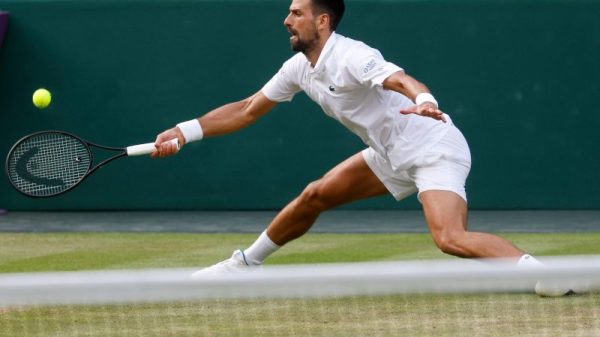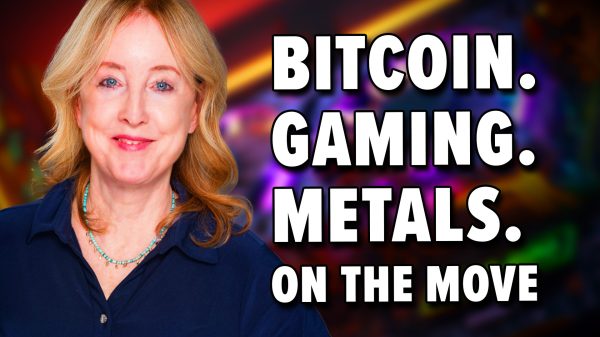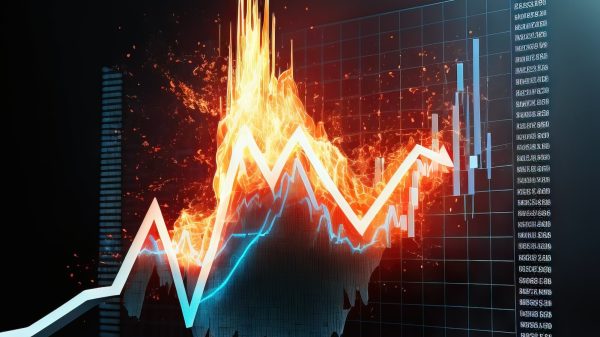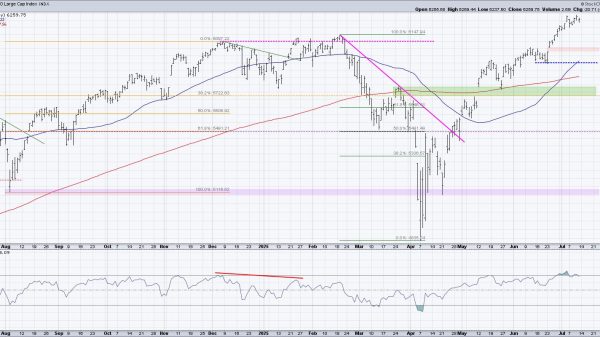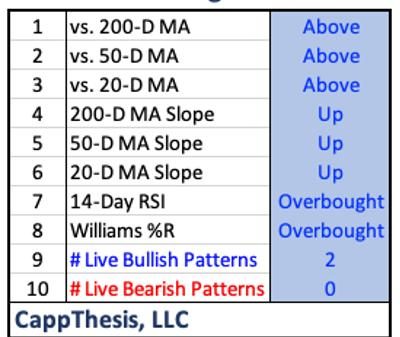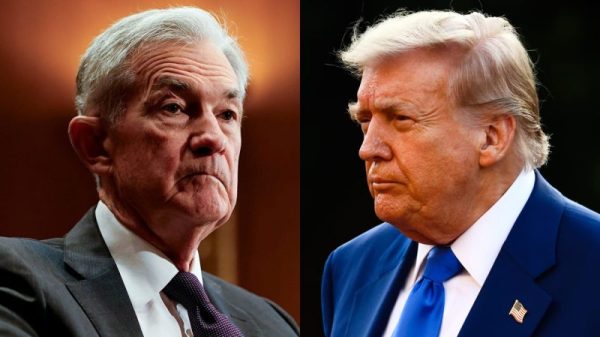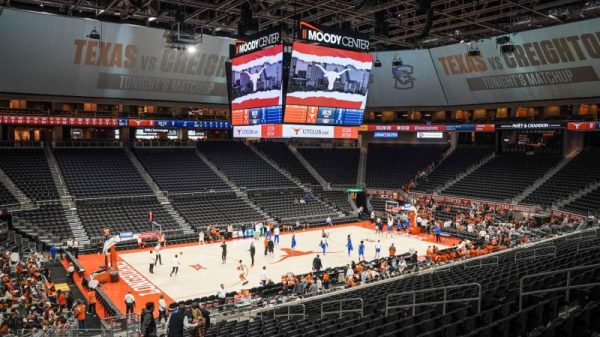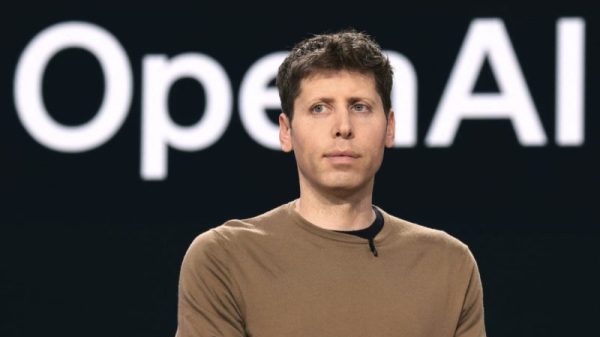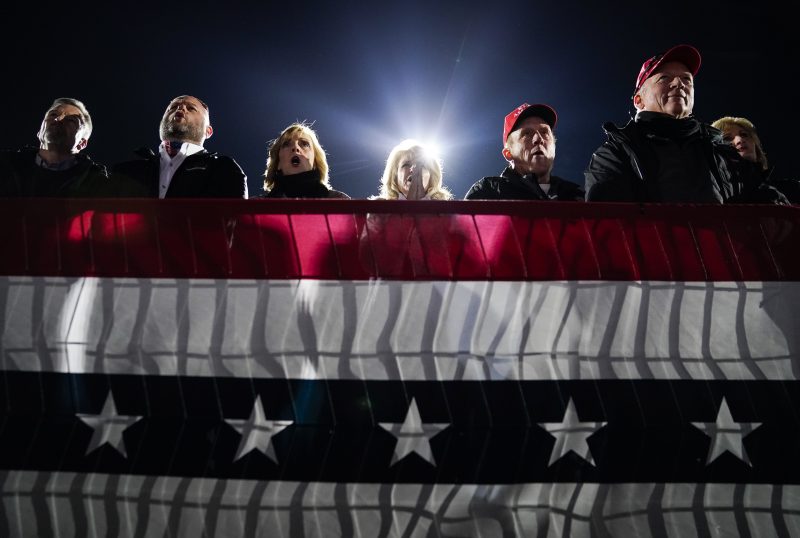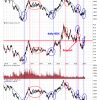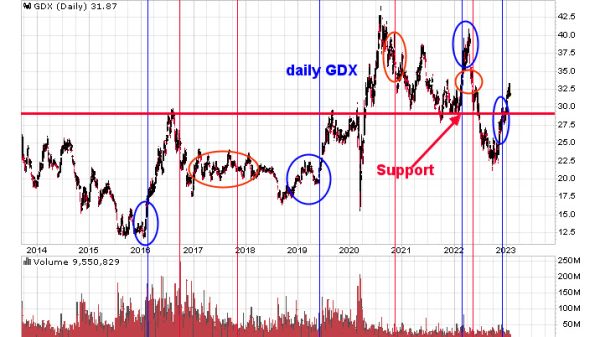VEGA ALTA, Puerto Rico — The blinds were drawn at a handsome villa in an oceanfront gated community on the northern coast of this Caribbean island. Inside, a woman’s voice could be heard calling out “Ken” — but no one answered the door.
Records show this is the tropical refuge of Kenneth J. Chesebro, a lawyer who allegedly marshaled supporters of President Donald Trump to pose as electors in states won by Joe Biden in 2020, creating a pretext for Vice President Mike Pence to delay counting or disregard valid electoral college votes on Jan. 6, 2021.
Since then, Chesebro, 62, has kept a low profile. He decamped to Puerto Rico from New York last year, and some friends said he’d fallen out of touch. A prominent law firm issued no public announcement last year when it tapped him to run a new department and added no mention of him to its website.
Trump investigations
End of carousel
Lawyers handling a case against him in Wisconsin have told a judge they were unable to locate him. Even the House select committee that investigated the pro-Trump attack on the Capitol did not depose him until last fall — after it had interviewed more than a thousand others and conducted public hearings — because it had trouble finding him, according to a person familiar with the situation who was not authorized to speak publicly.
Chesebro was among 19 people charged Monday in Georgia with a raft of crimes related to alleged efforts to overturn the results of the 2020 election. A 98-page indictment secured by Atlanta-area prosecutors portrays Chesebro as central not just to the convening of sham electors but also to the “strategy for disrupting and delaying the joint session of Congress on Jan. 6, 2021.” He faces seven felony charges, including conspiracy to commit forgery and conspiracy to file false documents, as well as violation of an anti-racketeering act originally aimed at dismantling organized crime groups.
In the separate federal case brought against Trump this month, Chesebro has not been charged. Prosecutors described him only as “Co-Conspirator 5,” saying he was behind “a corrupt plan to subvert the federal government function by stopping Biden electors’ votes from being counted and certified.”
A Harvard-trained lawyer once keen on liberal causes, and registered as a Democrat as recently as 2016, Chesebro may be the least well known of the small set of figures key to both indictments. His retreat from public life since Jan. 6 has deepened the mystery for former classmates and colleagues puzzling over how he became a central player in plans to reverse the outcome of a democratic election.
“The Ken I knew would not have been involved with that,” said Holly Hostrop, a lawyer who worked with Chesebro about 20 years ago on litigation against the tobacco industry that extracted millions in punitive damages for ailing smokers. “I have great respect for his legal skills and felt we were on the side of angels in that litigation. It makes me wonder how he got sucked into this.”
Chesebro and his attorney did not respond to requests for comment. As part of a rare interview with Talking Points Memo last summer, Chesebro issued a statement saying, “It is the duty of any attorney to leave no stone unturned in examining the legal options that exist in a particular situation.”
“This is what lawyers do,” he added.
The successful appellate lawyer studied at Harvard University under Laurence Tribe, the preeminent legal scholar who advised congressional Democrats on both of Trump’s impeachments. Chesebro continued working with Tribe for about 20 years, on wide-ranging litigation involving class-action claims and punitive damages.
But friends said his politics seemed to shift after he reaped sizable returns from his investments in cryptocurrency in the past half-decade. He began to stake out more-libertarian positions in legal briefs, especially in his home state of Wisconsin, where he started donating to Republicans and working with a former judge, Jim Troupis, who Chesebro would later testify under oath had brought him into Trump’s orbit.
“He was not making good-faith legal arguments for his client,” said Tribe, who expressed dismay over his former mentee’s emergence as an architect of Trump’s plans to cling to power. “He was inventing legal fiction that paid no attention to the law and creating a pretext for a conspiracy to steal an election.”
Chesebro (pronounced “Chez-bro,” after the family’s origins in an English borough on the River Chess) was raised in Wisconsin Rapids, about 100 miles north of Madison, according to a relative who spoke on the condition of anonymity to share private details. His father was a music teacher, his mother a speech therapist.
“I think he was always pretty liberal,” said another relative, Emory Erickson, Chesebro’s stepfather, who is no longer married to his mother.
After attending Northwestern University, Chesebro went on to Harvard Law School, where some classmates knew him as “The Cheese.” He graduated in 1986, the same year as Elena Kagan, the Supreme Court justice, and a year ahead of Ron Klain, Biden’s longtime aide and former White House chief of staff — all were research assistants for Tribe, the professor said.
A brief detour to Washington involved a clerkship with Gerhard A. Gesell, a federal judge whose prominent cases included Watergate trials in which he affirmed that “it is impossible to preserve freedom anywhere when the zealots take over and the rule of law is ignored.” Then Chesebro returned to Cambridge, Mass., to continue working with Tribe.
Chesebro’s relationship with the influential professor was unique, former classmates said. “He idolized Larry Tribe,” said Jonathan Massey, a prominent Washington lawyer, who recalled that Chesebro, “a pretty standard liberal,” was among the first to turn the traditional role of student research assistant into a post-law-school career.
“I had the impression that Ken really cared about the underdog, about people who were screwed by the system,” Tribe said.
Chesebro left a significant imprint on important, if unflashy, areas of the law. In 1993, he represented the family of two boys with birth defects whose case against a pharmaceutical company led the U.S. Supreme Court to loosen restrictions on expert testimony that business interests considered “junk science” — a judgment that transformed the use of scientific evidence in the courtroom.
In 2000, when Tribe joined Vice President Al Gore’s legal team dealing with the recount of the presidential vote in Florida, Chesebro offered to assist, Tribe recalled. Chesebro helped parse Florida law governing deadlines for the selection of electors, Tribe said.
Twenty years later, Chesebro would cite the case in his work for Trump. Tribe said the interpretation twisted their research to argue that “any state can submit new electors at any time.”
“That was the birth pangs of Trump’s plot, as I see it,” Tribe said.
Back then, Chesebro seemed like a committed Democrat. He donated to the Clinton-Gore campaign in 1995 and to John F. Kerry’s 2000 Senate campaign, federal records show.
When Tribe invited him to a fundraiser for Barack Obama’s Senate campaign in 2004, Chesebro responded with effusive praise for the rising Democratic star, also a former Tribe research assistant. He wrote that the candidate’s speech at that year’s Democratic National Convention recalled the oratory of Abraham Lincoln, according to emails first reported by the newsletter Air Mail and reviewed by The Washington Post. And he mused that Obama would “make a pretty good Supreme Court justice.”
When Obama was elected president four years later, and Tribe thought he might be appointed to a position at the Justice Department, Chesebro helped his former professor anticipate right-wing lines of attack, according to correspondence from the time.
Ongoing investigations involving Donald Trump
1/6
End of carousel
In 2014, Chesebro invested in a bitcoin fund overseen by Grayscale, a cryptocurrency asset manager, he would later write to Tribe. He said he invested a “low six-figure sum” and ended up making “several million dollars” when he sold in 2017. Then, after prices crashed in 2018, he reinvested his profits, he wrote.
In 2016, he changed his party registration in Massachusetts from Democrat to unaffiliated, according to the Cambridge Election Commission. Around the same time, the political bent of his legal briefs became less predictable, friends and colleagues said.
Early that year, he joined with the Wisconsin Institute for Law and Liberty, a conservative firm based in Milwaukee, to file an amicus brief supporting the state legislature’s ban on residency requirements for most municipal jobs, requirements favored by the Democratic-leaning city.
Four months later, he worked with John Eastman, a constitutional lawyer affiliated with the right-wing Claremont Institute, on an amicus brief that cast birthright citizenship, the constitutional guarantee that anyone born in the United States is a citizen, as a “vestige of feudal times.” Eastman, who would go on to advise Trump after the 2020 election, did not respond to a question about his relationship with Chesebro. He was also indicted Monday in Georgia.
Chesebro worked again with a Claremont Institute affiliate in 2018, on a Wisconsin case that involved a political science professor who argued he was improperly suspended after criticizing a graduate student on his conservative blog. The case became a fault line in vexed debates over campus speech. Also involved was Troupis, the Wisconsin lawyer and former county judge who would go on to represent the Trump campaign in the state.
Chesebro soon began doing legal work for national Republicans as well, joining Troupis as counsel for Sens. Mike Lee of Utah and Ted Cruz of Texas and others on an amicus brief in the fall of 2018 that backed the Utah GOP in its efforts to assert greater control over the selection of party nominees.
He also became a GOP donor, first that fall to candidates running for federal office in Wisconsin and then, starting in 2020, to numerous national Republicans. He contributed $2,800 to Trump’s reelection campaign.
Chesebro began working for the Trump campaign about six days after the 2020 election, at the request of Troupis, he would later tell the House select committee investigating the Jan. 6 attack. Troupis “wanted help from an appellate lawyer going forward to make sure that he could adequately staff the case,” Chesebro said.
“And so, he asked me if I was willing to do that, and I said I was,” he testified.
Memos and documents cited in the indictments in Washington and Atlanta show how Chesebro laid the legal foundation for dueling slates of pro-Trump electors.
A Nov. 18, 2020, memo from Chesebro urged Trump electors to meet and vote in Wisconsin because of the ongoing recount in that state, according to the indictment. Then Chesebro wrote in a Dec. 6 memo that Trump electors should convene not just in Wisconsin but in six “contested States” as a way to “prevent Biden from amassing 270 electoral votes.” The memo anticipated that Pence would not just open but count the sham votes, creating uncertainty about the election’s true victor. In a memo three days later, federal prosecutors charge, Chesebro provided “instructions on how fraudulent electors could mimic legitimate electors.”
On Dec. 13, the day before the electors were to convene, Chesebro emailed Trump lawyer Rudy Giuliani to argue that Pence could choose from among “conflicting votes” presented to Congress, according to documents released by House investigators and cited in the Georgia indictment. The suggestion was at odds with how mainstream lawyers have long interpreted the U.S. Constitution’s 12th Amendment and the Electoral Count Act of 1887. But Chesebro wrote that his proposal “seems preferable to allowing the Electoral Count Act to operate by its terms,” according to the indictment.
Chesebro went on to distribute instructions and draft certificates to the sham electors in the various states, prosecutors allege. In Wisconsin, he attended the meeting of the Trump electors held at the state capitol, the state GOP chairman said in his deposition before the House committee.
The committee also asked Chesebro in his deposition about documents showing he was on a list to attend a Dec. 16 meeting at the White House. He declined to answer, as he did with many of the committee’s questions, invoking attorney-client privilege and the Fifth Amendment’s protection against self-incrimination.
On Christmas Eve, as he and Eastman sized up the chances that four Supreme Court justices — the number needed to take a case — would agree to hear an election-related complaint, Chesebro wrote in an email cited by the House committee that the justices might be moved to act if they feared “chaos” on Jan. 6.
That chaos came.
Just over a year after Chesebro’s plan failed, he registered as an unaffiliated voter in New York, records show.
In May 2022, two Biden electors and another Democrat in Wisconsin sued Chesebro, along with Troupis and the state’s 10 fake electors, arguing that they took part in a “civil conspiracy,” unlawfully assumed a public office and caused a public nuisance, in violation of state and federal laws.
Chesebro was initially served in the case at an apartment on Central Park in New York, according to a June 2022 filing in the case. But lawyers complained that he became difficult to locate after that, according to subsequent filings. A doorman at the plush New York apartment soon said he no longer lived there, one filing said.
In October, Napoli Shkolnik, a New York-based personal injury firm whose high-profile clients have included victims of the Sept. 11, 2001, attacks and residents of Flint, Mich., affected by the water crisis there, informed employees in an email that it had brought on Chesebro for an important role. Gloria Werle, the firm’s chief operating officer, wrote that Chesebro was “heading up our new Law & Motions Department” and that he and his wife were relocating to Puerto Rico, where some of the partners live. Chesebro’s work, according to the email, would include drafting “some of the firm’s most important filings.”
“Please join me in wishing Ken much success with this new undertaking!” Werle concluded.
Chesebro testified to House investigators last year that he had recently moved to Puerto Rico, explaining that Hurricane Fiona had delayed the transfer of documents he was preparing to release to the committee.
Chesebro’s affiliation with Napoli Shkolnik has come up in two recent lawsuits against the firm, filed by former employees alleging discrimination, harassment and retaliation — and arguing that his hiring showed the firm did not value ethics and inclusivity. The firm has denied the allegations and moved to dismiss the lawsuits.
Paul J. Napoli, a longtime partner, said in an interview that he first worked with Chesebro in the late 1990s on litigation involving the diet pill combination fen-phen. Chesebro reached out to him last year on LinkedIn to ask if the firm had any work for him, Napoli said, and Chesebro was brought on as an independent contractor.
In an interview before Monday’s indictment, Napoli said Chesebro “advised us that he had some relationship with Jan. 6, but we didn’t really realize what it was. He sort of downplayed it.” Because he is now a “lightning rod for opinions,” Chesebro would probably receive less work from the firm, Napoli predicted.
“It’s a shame because he’s a brilliant mind,” he added.
In an email Tuesday after charges were filed, Napoli said the firm had severed ties with Chesebro.
Chesebro has faced a series of other consequences stemming from his work after the 2020 election.
About 10 days after his affiliation with the Napoli firm was announced internally, a group called Lawyers Defending American Democracy filed an ethics complaint against him in New York, asking a state grievance committee to investigate his conduct and “impose appropriate sanctions.” Tribe was among dozens of high-profile legal figures who signed the complaint.
The allegations laid out in the federal and Georgia indictments have left his former friends struggling to understand his role.
“It doesn’t seem like he was out there spewing lies publicly like Giuliani and Powell,” said Hostrop, the former colleague who worked with Chesebro on litigation against the tobacco industry, referring to the former New York mayor and the pro-Trump lawyer Sidney Powell.
But Tribe called Chesebro “the brains” behind the fake electoral scheme.
“If the pressure campaign on Pence had worked,” Tribe said, Chesebro and Eastman “would have generated a successful coup.”
Alice Crites, Chris Dehghanpoor, Magda Jean-Louis and Patrick Marley contributed to this report.










